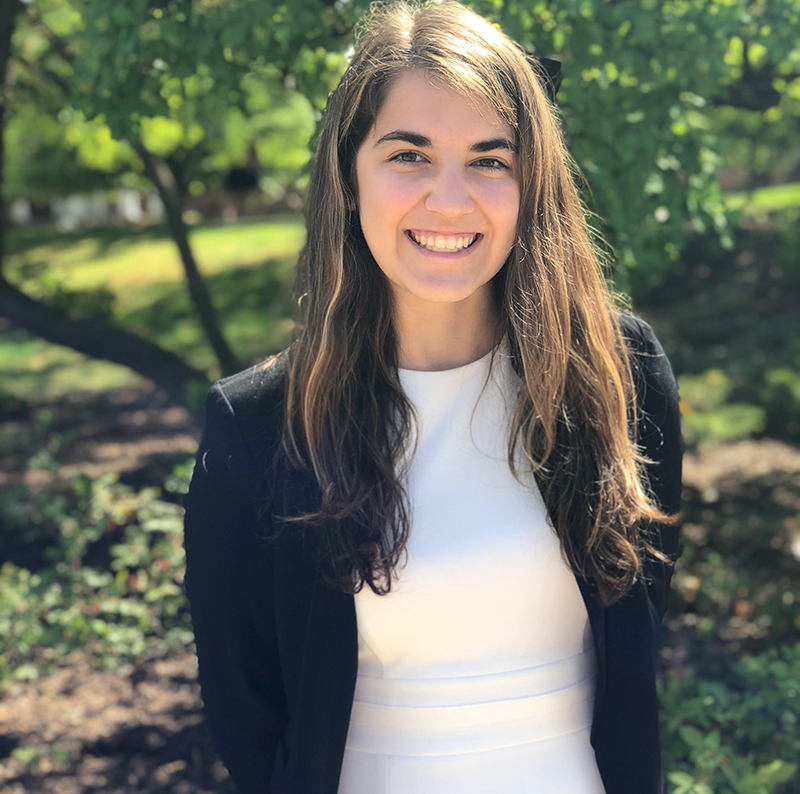
I am extremely fascinated by biofilms because I believe that they can be developed for applications from oil spill clean-up to nanoparticle degradation - both of which are important to NOAA's mission and research.
Sophomore BIOE student Jessica Boyer was recently awarded a 2019 National Oceanic and Atmospheric Administration (NOAA) Hollings Scholarship. Boyer hopes to apply the scholarship to further her study of biomaterials applications on natural systems.
Hollings Scholarship recipients are granted up to $19,000 of financial assistance over the course of two years, as well as professional development opportunities including a paid summer internship at a NOAA facility. Rising juniors in four-year undergraduate programs and rising seniors in five-year programs within the STEM sector and other majors are eligible for the award.
One of the Hollings Scholarship’s program goals is to increase public understanding and support for stewardship of the ocean and atmosphere and improve environmental literacy.
Jessica explains her initial interest in NOAA's work: “I was excited to see that NOAA does work with water quality and waterway bioremediation, especially as it pertains to pharmaceutical nanoparticles, oil spills, algal blooms, and other human-related environmental stressors.”
A high school advanced biology class inspired Jessica to study bioengineering in college. She hopes to one day find solutions to environmental problems like contaminated marine ecosystems and wavering coastal health.
Earlier this year, Jessica teamed up with Pedro E. Wasmer Professor in Engineering Birthe Kjellerup, a BIOE affiliate professor and Department of Civil and Environmental Engineering assistant professor. Kjellerup heads CEE's environmental engineering laboratory specializing in biofilms and the degradation of polychlorinated biphenyls (PCBs) and other environmental contaminants. Along with the lab group, Boyer will collaborate with a postdoctoral researcher and researchers from South America to process salt marsh samples from the El Huasco saline lake in northern Chile.
"I am extremely fascinated by biofilms because I believe that they can be developed for applications from oil spill clean-up to nanoparticle degradation - both of which are important to NOAA's mission and research."
Moving forward, Jessica plans to continue her research in Kjellerup's lab through the Maryland Summer Scholars Fellowship program. She is already counting down the days to her internship placement at a NOAA facility, slated for summer 2020.
“I am most excited to be able to apply my bioengineering knowledge to something that I am passionate about and that I can connect my bioengineering and environmental engineering interests with the facilities of NOAA,” she explained. “I am also excited for the mentorship I will receive and the network of other students that I will be able to connect with.”
Top